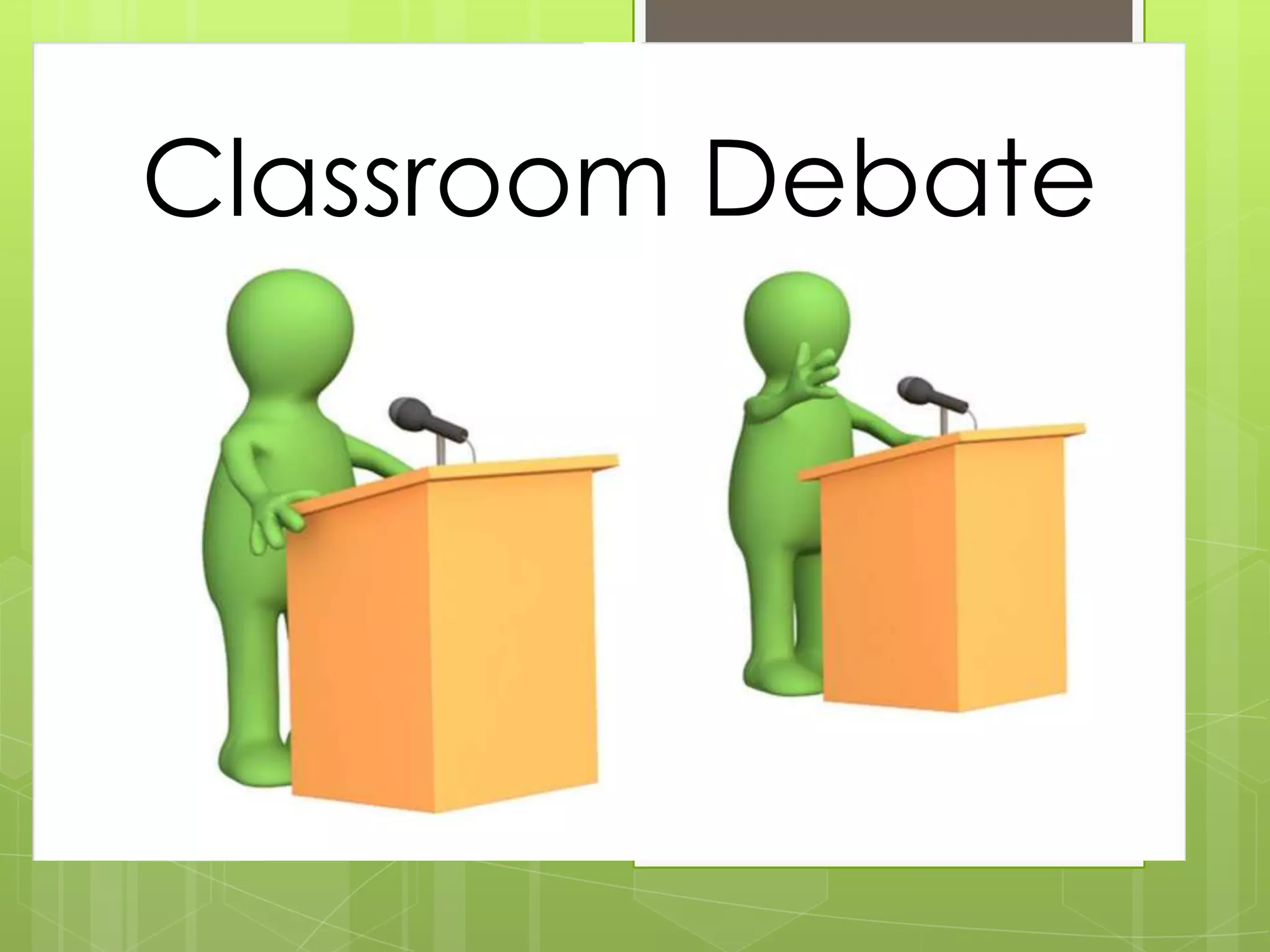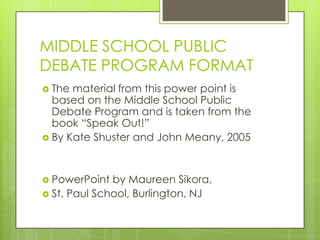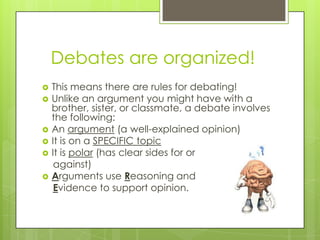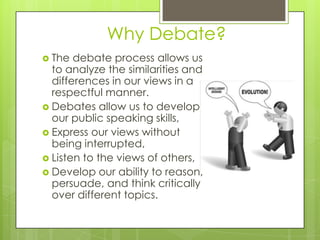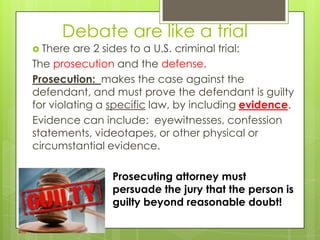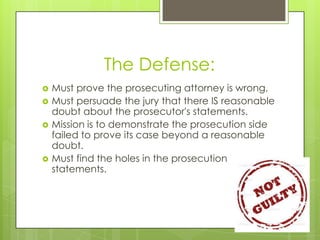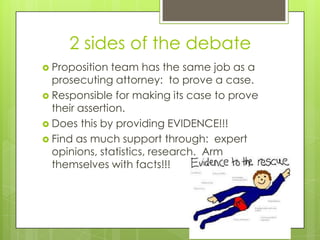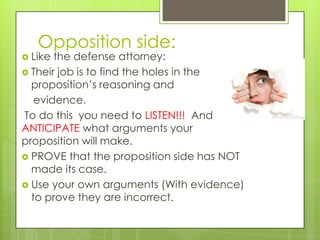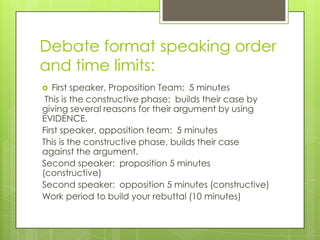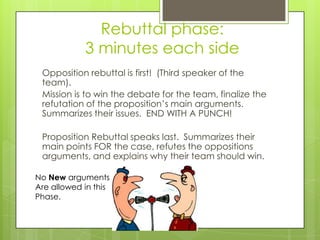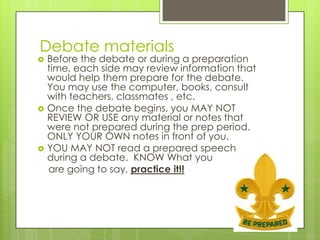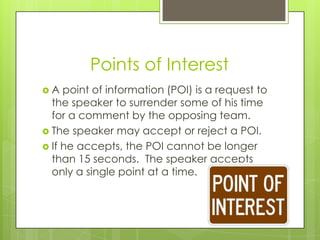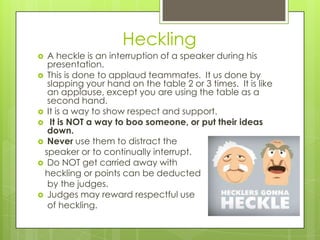This document provides an overview of the format and rules for middle school public debate programs. It explains that debates involve structured discussions between two opposing sides aimed at encouraging critical thinking, personal expression, and tolerance of differing opinions. Key aspects of debates covered include having a specific topic, clear proposition and opposition sides, and arguments supported by reasoning and evidence. The debate format involves five-minute constructive speeches from each side, followed by a ten-minute preparation period and three-minute rebuttals. Points of information and respectful heckling are also discussed.
